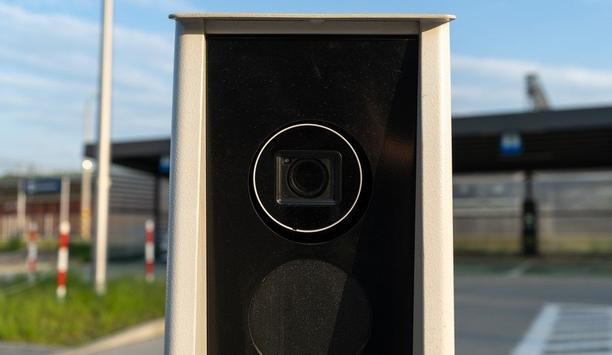Office security - Round table discussions
For many years, security systems produced their share of "data exhaust." Every access control action and each video image became a data point to be stored in perpetuity, with no practical way to use the data. More recently, systems have been developed to enable organizations to analyze data from sensors and other connected devices to gain valuable insights into how their systems are being used, to identify potential vulnerabilities; and even to provide insights into broader enterprise operations...
There is safety in numbers, or so the expression goes. Generally speaking, several employees working together tend to be safer than a single employee working alone. Even so, some environments require that workers complete their jobs alone, thus presenting a unique combination of security vulnerabilities. The U.S. Occupational Safety and Health Administration (OSHA) defines a lone worker as “an employee working alone, such as in a confined space or isolated location.” We asked this we...
In the United States, they are called licence plate recognition (LPR) systems. In Europe, the more common term is automated licence number-plate recognition (ANPR). In either case, the systems provide capabilities that can benefit a range of applications from schools to municipalities to parking lots. Newer technologies can even identify vehicle colour, type, make and model. We asked this week’s Expert Panel Roundtable: What's new with licence plate recognition (LPR) and/or automated numbe...
Headlines of violence in our schools are a reminder of the need to keep educational institutions safe. In fact, if there is a positive aspect to the constant bombardment of headlines, it is that it keeps our attention perpetually focused on how to improve school security. But what is the role of physical security systems? As the new school year begins, we asked this week’s Expert Panel Roundtable: Are schools safer because of physical security systems? Why or why not?
As physical security technologies become more complex, it is incumbent on the dealer/integrator to have the skills and expertise needed to ensure that a system operates smoothly. The value of integrators increasingly rests on the skill sets they bring to bear when installing a system. If the skills are missing, there is a problem. We asked this week’s Expert Panel Roundtable: What missing skills among security integrators can cause problems for customers?
Driving the smart homes market is the convenience of simple technology solutions. Almost every home now has a “smart speaker” that makes it easier than ever for homeowners to interface and control their technology. But where does security fit into the new landscape of smart home systems? We asked this week’s Expert Panel Roundtable: What’s new in smart homes and residential security systems?
Historically, the emphasis of security systems has been on reactivity, whether it’s providing video evidence of an incident or data to support a resulting investigation. Reactivity is core to impactful security, but increasingly, systems are also seeking to be more proactive. A proactive system seeks to prevent events from happening in the first place, thus mitigating the harm to an organisation, and making the need for a reactive response moot. We asked this week’s Expert Panel Roun...
The role of the integrator/installer in the physical security marketplace is shifting as technologies evolve and applications expand. Integrators are being faced with a need to augment their expertise both in a wider range of systems and deeper into the specifics of each increasingly complex technology. At the end of the day, it falls to the integrator/installer to ensure a system performs as promised, however much a consultant or even a manufacturer might be involved in the process. We asked th...
Deployed across a wide range of devices, the Internet of Things (IoT) collects data to help business owners make decisions on a macro scale as well as at a granular level. The IoT is a network of physical devices embedded with sensors, software, and network connectivity that allows them to collect and share data. We called on this week's Expert Panel Roundtable to comment on the intersection of the IoT and physical security. We asked: How is the Internet of Things (IoT) increasing the effectiven...
Analogue video cameras are still used in a variety of applications, primarily because yesterday’s robust and flexible technology is still functioning today, although it has been years, or even decades, since the initial installation. In many cases, this past generation of security cameras is still reliable and effective. Embracing an installed base of analogue cameras is often the most cost-effective approach when updating or expanding a surveillance system. But what about the futur...
As the first line of defence against unauthorised access to business premises, perimeter security can alert an enterprise of potential security threats while delaying or preventing any loss or damage due to criminal acts. Combining hardware and software, perimeter security addresses the outermost ring of a facility’s concentric circles of protection. Obviously, any threat addressed at the outermost edge of defence does not become a more immediate and urgent threat closer to a facility. We...
According to a report by the U.S. Government Accountability Office (GAO), artificial intelligence (AI) is expected to transform all sectors of society, including national security. The physical security marketplace is certainly feeling the impact of the new technology, which has quickly gained prominence as one of the industry’s most popular buzzwords. To assess the more practical aspects of the situation, we asked this week’s Expert Panel Roundtable: How is artificial intelligence (...
A sad irony in the physical security industry has been the lax attention paid historically to the cybersecurity elements of our industry’s systems. However, the picture has improved starkly in recent years as manufacturers have stepped up to meet the cybersecurity challenges and awareness of the issue has become much higher. We asked this week’s Expert Panel Roundtable: What's new in cybersecurity for physical security systems?
Protecting video involves many of the same strategies and protocols as those used to protect any other type of data. In the world of IP cameras and systems, video can be transmitted anywhere in the world to anyone who needs to see it. But what about access by outsiders who are not authorised to view the video? Or what if heaven forbid, the video is accessed by an unauthorised user who later posts it to YouTube? We asked this week’s Expert Panel Roundtable: What safeguards are in place...
Every security system is unique, of course. Specific to each installation are the problems the customer and the integrator may experience along their journey. However, given the installation of hundreds of physical security systems, there are commonalities that occur. We asked this week’s Expert Panel Roundtable: What are the major pain points when installing a physical security system?
Biometrics is both a mature technology in the physical security world and an innovation perpetually on the cutting edge. Biometric technologies received a boost during the COVID pandemic when “touchless” became a buzzword with particular relevancy to the world of biometrics. Higher security needs, such as “two-factor authentication,” are also driving demand for biometric products. We asked this week’s Expert Panel Roundtable: What are the latest technology trends in...
A multi-factor authentication is a layered approach that requires users to provide two or more verification factors, such as credentials, to gain access to data and applications. If one of the credentials is compromised, the thinking goes, an unauthorised user will still be unable to meet the second authentication requirement and will be denied access to a targeted physical space, computing device, network, or database. Cybersecurity applications have long embraced the idea of MFA, which is also...
With 2023 well underway, it’s a good time to look back on what we learned in the tumultuous previous year. In the security marketplace, there was no shortage of technology developments and a few challenges that kept 2022 interesting, to say the least. But what can we learn from the past? We asked this week’s Expert Panel Roundtable: What changes had the biggest impact on the security marketplace in 2022?
Some trends in the security marketplace continue for several years, while others come and go quickly and are soon forgotten. Scrutinising a trend’s expected lifespan can help predict its impact on the marketplace. Trends that evaporate seemingly overnight are not useful for the greater good, and they can also distract customers from more enduring subjects. Unfortunately, sometimes hype is just hype. We asked this week’s Expert Panel Roundtable: Which new security trend do you think w...
Connectivity is literally the difference between products operating individually and those combined into a more powerful system. Many of the devices that connect today’s security products reflect mature technologies that have been proven over time. However, innovation is also driving the need for new approaches to connectivity and networking. We asked this week’s Expert Panel Roundtable: What are the new developments in networking and connectivity for security?
Machine learning refers to the evolving ability of computer systems to learn and adapt without following explicit instructions. It essentially involves the use of algorithms and statistical models to analyse and draw conclusions from patterns in data. In the security industry, when it comes to buzzwords, artificial intelligence (AI) has a higher profile than the more specific related term, although machine learning is a better description of tools that are gaining popularity in physical security...
Generally speaking, security becomes a topic of conversation among the general public only after something bad has happened. The context in these situations is: What went wrong? Largely absent from awareness by the public at large is how often things go right; that is, how often security systems work as intended to avoid expensive or even deadly consequences. We asked this week’s Expert Panel Roundtable: How can the industry communicate the value of security to the public?
The security trade show season is resuming this fall with the GSX show in the United States and Security Essen in Germany, among other upcoming industry events. The return of trade shows is gathering momentum following the COVID lockdowns and cancellations with plenty more shows coming soon. But how useful is attending industry trade shows? We asked this week’s Expert Panel Roundtable: What do you accomplish by attending a security industry show?
With fewer employees working in the office, and more of them working from home, it is no longer necessary for each employee to have their ‘own’ desk. Rather, desks may be used by various people at different times, as needed on an ad hoc basis. This arrangement, known as ‘hot desking,’ maximises space efficiency and reduces unneeded office space. We asked this week’s Expert Panel Roundtable: What will be the impact of ‘hot desking’ on the security marketp...
The Metaverse sounds like the plot of the latest summer action movie. In reality, it’s a technology - or, more accurately, a group of technologies - that will likely have a transformational impact on a host of markets. For security, the Metaverse has an extensive list of needs. It also presents some opportunities. We asked this week’s Expert Panel Roundtable: What does the Metaverse mean for security?
It’s safe to say there has been more change in the workplace in the last two years than ever before. Driven by the pandemic, technology has both allowed greater flexibility for employees and enabled continuing prosperity for many companies that otherwise would have had to cease operation. But have security protocols and practices done enough to enable companies to keep pace with the changes? We asked this week’s Expert Panel Roundtable: Have security protocols and practices kept up w...
It’s a debate almost as old as the security industry itself: open systems versus end-to-end solutions. The argument goes that end-to-end solutions from a single manufacturer tend to “lock in” an end-user to a certain company’s technology platform. In contrast, open systems offer greater flexibility over the long haul. However, the popularity of end-to-end solutions suggests a healthy continuing market for these systems. We asked this week’s Expert Panel Roundtable:...
The advantages of security systems as forensic and investigative tools are well understood and demonstrated in the market. However, the new trend is toward systems that are useful in real-time and that even predict a security event, before it happens. We asked this week’s Expert Panel Roundtable: Which security systems are becoming more proactive than reactive?
Can we finally relax a little and announce that the pandemic is nearing an end? With all the false starts and stops, it’s understandable if uncertainty continues to be the dominant force. The apprehension that ruled at every stage continues even as the pandemic (hopefully) ends. But what about ‘the new normal?’ How will the industry need to reinvent itself in the post-pandemic world? We asked this week’s Expert Panel Roundtable: As the industry transitions back to in-pers...
Early in the pandemic, before the mechanisms of COVID spread were clearly understood, there was talk about the disease being transmitted through contact with surfaces. Such concerns created a windfall for manufacturers of hand sanitizer, and broadly changed the perceived risks of touching surfaces, perhaps forever. Touching the same surface as hundreds of other people suddenly became less desirable, thus boosting the fortunes of “touchless” access control and security devices. But wi...
One system, one card
DownloadAligning physical and cyber defence for total protection
DownloadUnderstanding AI-powered video analytics
DownloadEnhancing physical access control using a self-service model
DownloadHow to implement a physical security strategy with privacy in mind
Download





































